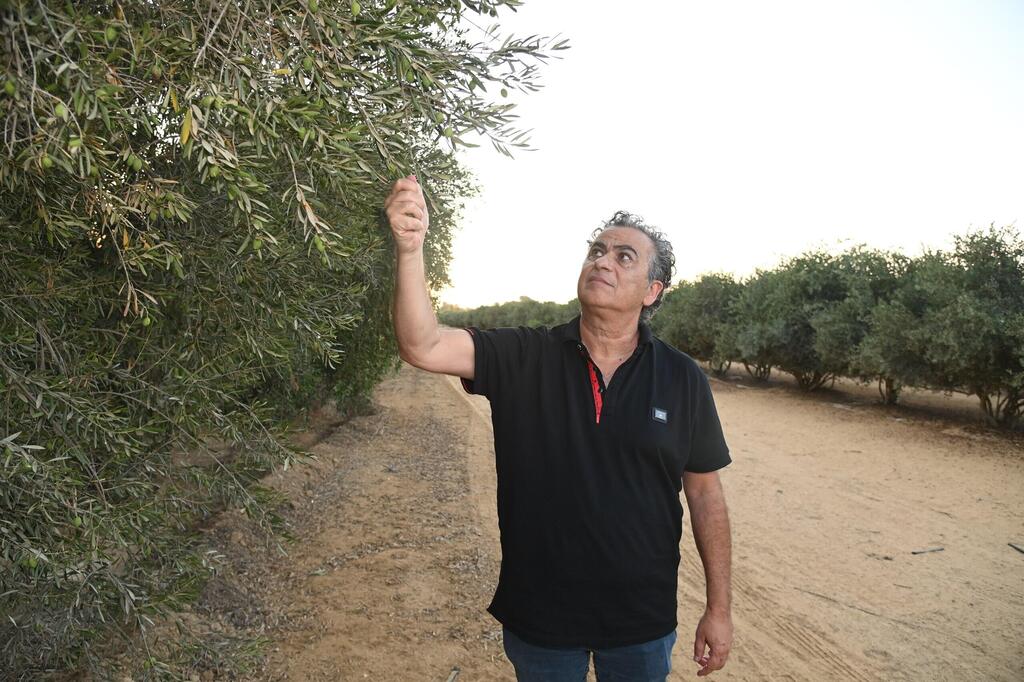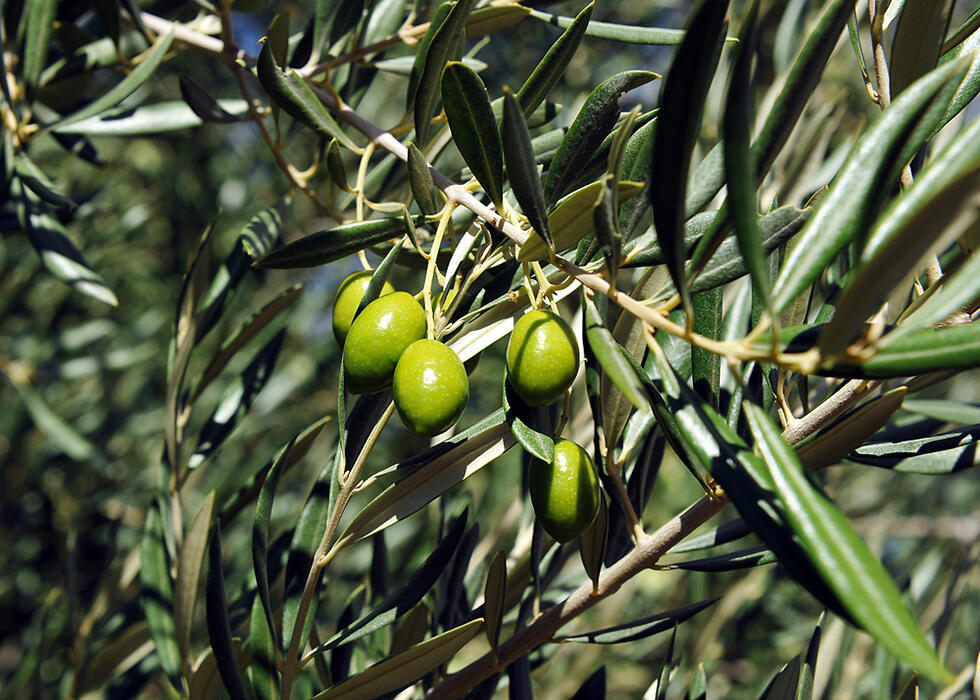Both locally and globally, the olive sector is grappling with a crisis, and farmers have been voicing their worries in recent months. The impact of climate change has resulted in heatwaves and droughts, notably affecting Spain, a key olive oil supplier. Israeli farmers have been cautioning about rising prices since May, and throughout 2023, there has been a steady increase in prices.
Read more:
Israel boasts more than 300,000 acres of olive tree plantations, according to Israel's Agriculture Ministry. The prime cultivation areas are situated in the northern region, specifically in the Galilee and Golan Heights. Since the introduction of reforms and tariff reductions, roughly 200,000 olive trees have been uprooted, likely due to the industry's lack of certainty. As things currently stand, around half of Israel's olive oil is imported.
In the southern Kibbutz Revivim, located in the Ramat Negev Regional Council, the once-flourishing olive grove has been dismantled, and now farmers are preparing to remove its last remnants. David Ben-Lulu, representing Revivim's agricultural center, clarifies, that "it's not financially feasible."
"The revenue from olive oil doesn't cover costs. While I believe in economic freedom, I don't believe a word from this government. Without substantial aid, akin to what Spain provides, our sustenance is at risk. Olive oil prices are on the rise, leading us to uproot due to lack of profitability. Unstable conditions devastate the industry," Ben-Lulu told Ynet.
The issue was discussed by Oren Lavi, director-general of the Agriculture Ministry, during a session of the parliamentary Economic Committee in June. He emphasized the importance of balancing local production with imports.
"We need to protect our domestic production while accommodating imports," Lavi said. He pointed out that, currently, only half of the olive oil sold in Israel is locally produced, and the tariff reduction on olive oil doesn't necessarily result in lower prices for consumers.
Suhail Zeidan, who leads Israel's Olive Industry Directorate, said: "Our stance is that olive cultivators should sustain themselves and have the means to grow their own food. It would be a regrettable decision to remove centuries-old orchards in the Galilee, tantamount to erasing our agricultural heritage."
"The shortage of olive oil materializes our longstanding warnings," noted Israel Farmers Association's General Secretary Uri Dorman. "The global climate crisis and energy issues impact all nations. Instead of ensuring consistent agricultural output and guaranteeing farmer security, Israel opted to reduce tariffs and open imports without providing aid to farmers.
"This decision further exacerbated farmers' uncertainty, leading them to remove significant portions of their olive orchards, mainly in the Negev and Galilee. The olive sector's support agreement is nearing its final stages after extensive negotiations, and we remain hopeful and confident that the agreement will introduce some stability to the industry," he said.
The Agriculture Ministry has responded by saying it has yet to reach an understanding with the Economy Ministry, but noted direct support for Israeli farmers must increase substantially for the industry to remain viable.



